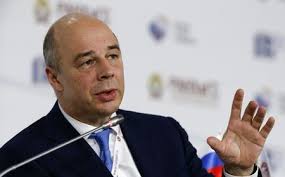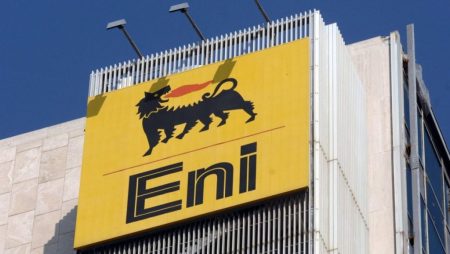
*Gross operating income for the period stood at USD144.7 million while net profit reached USD54.8 million
DAMMAM, Kingdom of Saudi Arabia — Gross operating income at USD144.7 million and net income at USD54.8 million despite adverse global conditions; Balance sheet grew by 10% to reach USD8.1 billion; APICORP launched a USD500 million countercyclical support package towards easing the financial pressures of the COVID-19 pandemic and oil price fluctuations in the region.
The Arab Petroleum Investments Corporation, APICORP, a multilateral development financial institution, announced its half-year results for the six months ended 30 June, 2020. Gross operating income for the period stood at USD144.7 million while net profit reached USD54.8 million.
While down from the corresponding period last year at 20% and 22%, respectively, the net profit results are notable under the current market conditions due to the COVID-19 pandemic and oil price fluctuations.
The revenue was mainly affected by the decrease in dividends from portfolio companies as well as revaluations in the equity investments portfolio due to the pandemic.
Income from APICORP’s Treasury and Capital Markets rose to USD60.4 million, a 38% increase compared to the corresponding period of last year.
Income over LIBOR from Corporate Banking for the period remained the same as compared to the first half of last year, reaching USD50.3 million.
Moreover, the Corporation maintained its annualized efficiency ratio at 25.6% for the period, the same as for the 2019 financial year.
Over the period, APICORP’s balance sheet grew 10% to reach USD 8.1 billion, due in large part to the growth in the size of its Treasury and Capital Markets portfolio which was funded mainly by the issuance of a benchmark USD750 million bond in June 2020.
This has contributed to APICORP’s readiness to fund its future business needs. APICORP also further bolstered its financial sustainability by increasing the share of its liabilities whose maturity is beyond two years to 45% of its total liabilities and shareholders’ equity, up from 40% in December 2019.
Commenting on the announcement, Dr. Ahmed Ali Attiga, Chief Executive Officer, APICORP, said: “The results in the first six months of 2020 are a testament to the resilience of APICORP in the face of a tough global business environment. Notwithstanding the triple crisis of COVID-19, oil price volatility and economic downturn, APICORP continued to go from strength to strength, further bolstering its financial position and diversifying its portfolio as it continues its drive to support the energy transition in the region. This includes a historic callable capital increase, a highly successful benchmark bond issuance, a USD500 million countercyclical support package, being assigned a second rating of ‘AA’ with a stable outlook from Fitch, as well as forging new partnerships with other leaders in key projects within the energy space.”
“We are looking forward to the coming period for a gradual recovery in our operating environment and the new opportunities it will bring. As the trusted financial partner to the MENA region’s energy industry, we will continue to support our Member Countries and partners to alleviate the impact of COVID-19, with a focus on sustainable impact-driven energy projects and activities in the region,” Dr. Attiga added.
Dr. Sherif Ayoub, Chief Financial Officer, APICORP, said: “The robust financial and risk metrics, as well as profit-generating ability during challenging times of the first half of 2020, demonstrate APICORP’s ability to navigate unprecedented economic challenges. In particular, the liquidity metrics have shown tremendous resilience to withstand market shocks due, in part, to our deep and diverse funding base, while the capital adequacy ratio of 29.2% reflects the high-quality nature of our portfolio.”
Highlights from 1H2020
Highlights from the first half of the year include a landmark increase in APICORP’s callable capital to USD8.5 billion, as well as the largest-ever increase in authorized capital and subscribed capital to USD20 billion and USD10 billion, respectively.
APICORP was assigned an ‘AA’ rating with a stable outlook by Fitch and had its ‘Aa2’ rating with a stable outlook affirmed by Moody’s, becoming the only financial institution in MENA currently to hold these two ratings.
This is a testament of APICORP’s ability to execute its important public mandate in the strategic and vital energy sector within its Member Countries, and beyond. Moreover, it reflects the multilateral’s strong financial fundamentals and resilience despite current economic and market conditions.
APICORP launched a USD500 million countercyclical support package in April 2020 aimed at easing the financial pressures of the COVID-19 pandemic and oil price fluctuations on the region’s energy sector.
The package is being deployed to support sustainable impact-driven projects by extending funding for projects and working capital within various energy sub-sectors, as well as expanding trade finance support to its Member Countries to reduce the fiscal and current account pressures caused by current market conditions.
APICORP issued a benchmark USD750 million dollar-denominated bond in June which attracted robust and diverse investor demand. At 1.46%, the five-year note’s fixed cost of funding was the lowest in the history of the Corporation.
APICORP acquired a 20% equity stake in Jordan Wind Project Company, owner and operator of the Tafila Wind Farm, the first utility-scale wind farm in MENA. The acquisition, the Corporation’s first equity investment both in Jordan and in a wind farm venture, will contribute to wider deployment of the region’s vast renewable energy sources to enable wider access to modern cost-effective electricity to millions of people.
On the financing side, the Corporation provided USD40 million in financing to the USD245 million state-of-the-art Dammam Independent Sewage Treatment Plant (ISTP), the first ISTP in Saudi Arabia, a key project that will help underpin the sustainability of the national utilities network. Besides, boasting world-class and energy-efficient facilities, the project is expected to create job opportunities for Saudis and support overall sustainable development within the Kingdom.



